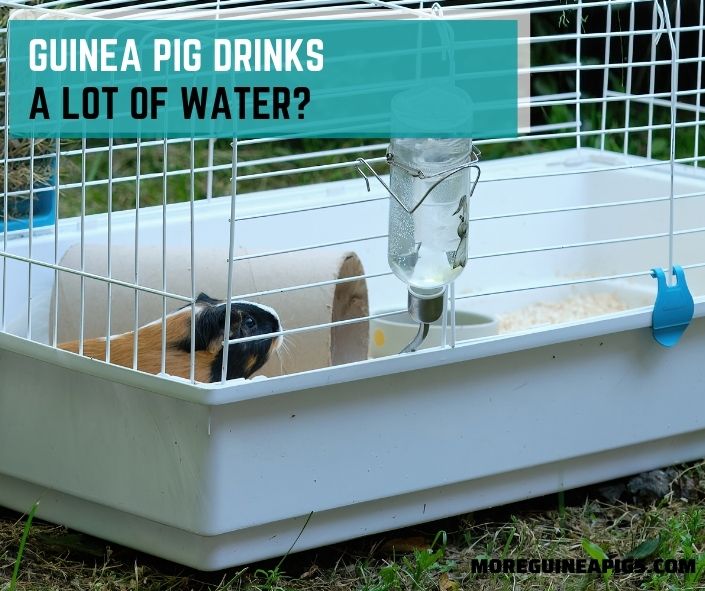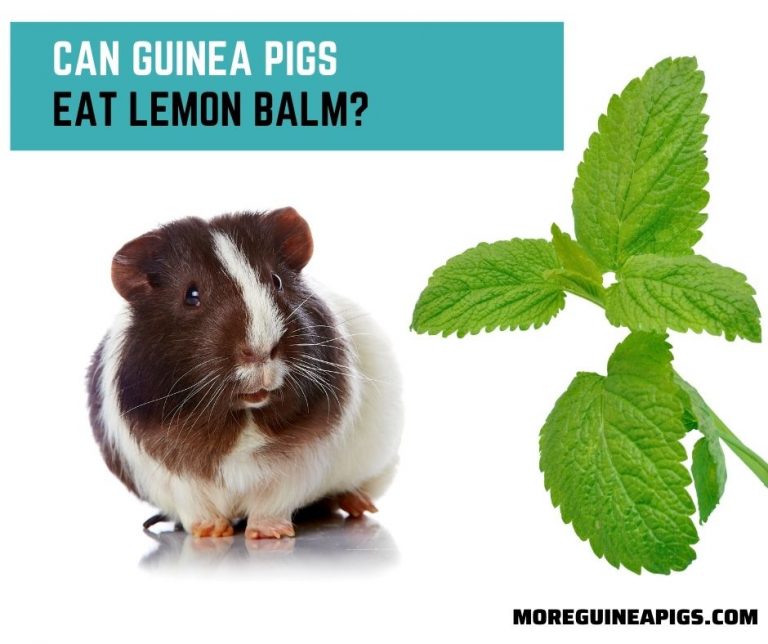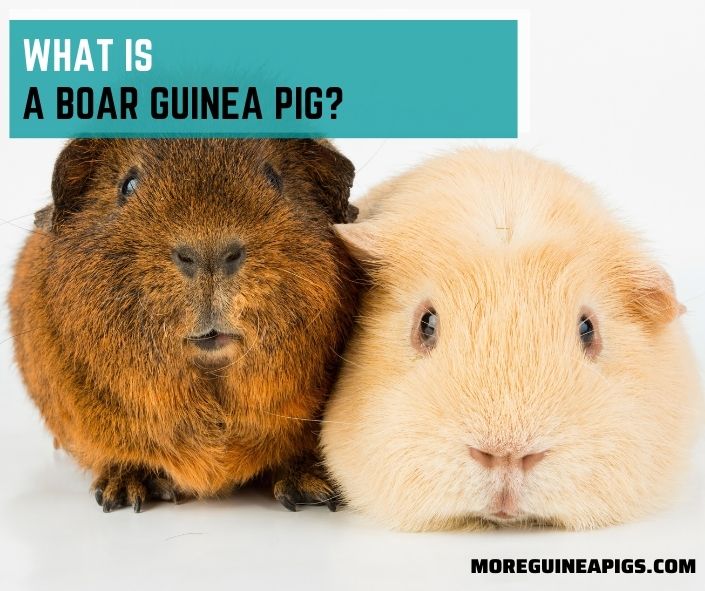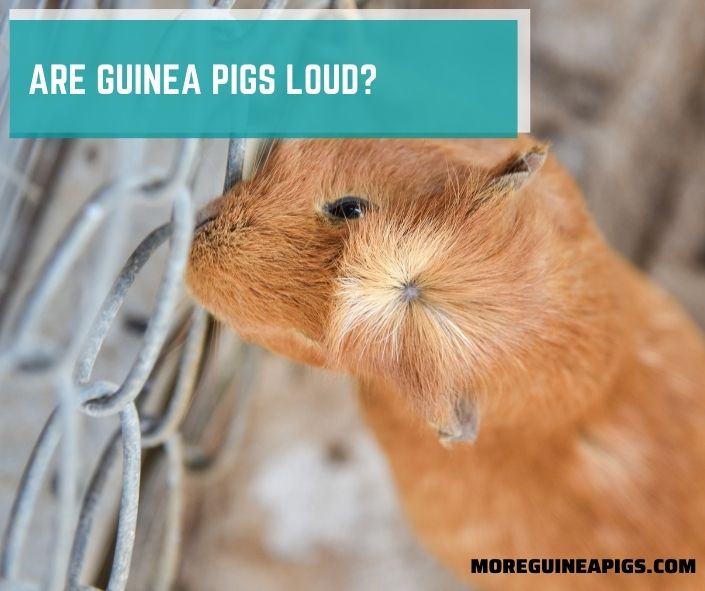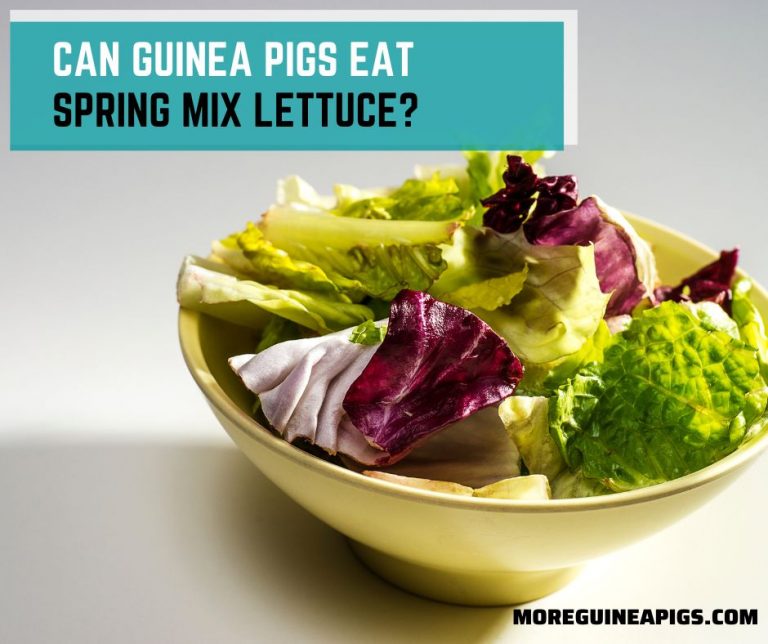What Does it Mean When a Guinea Pig Drinks a Lot of Water?
Sometimes guinea pig pets may present with abnormal behaviors such as excessive consumption of water.
To an owner experiencing this phenomenon for the first time, it can be a worrisome scenario with questions abound as to the meaning of the pet’s increased drinking.
This article explores some of the common causes of this phenomenon and what the normal water consumption ought to be in the first place.
You will learn the warning signs to look out for in case your pet is suddenly excessively thirsty, and some of the conditions this may be indicative of.
You will also learn some of the measures to take to keep your pet healthy and prevent conditions synonymous with excessive thirst from arising.
How Much Water Should a Guinea Pig Drink in a Day?
To be able to tell whether or not your pet’s consumption of water falls within what is the normal amount, you must be able to know its acceptable consumption.
In general, a healthy guinea pig drinks about 100 mL/kg (3.3 ounces/2.2 pounds) of water daily. This is approximately, on average, up to 10 percent of its body weight.
A consumption above this level calls for a keen scrutiny of the circumstances to detect any abnormalities in your cavy.
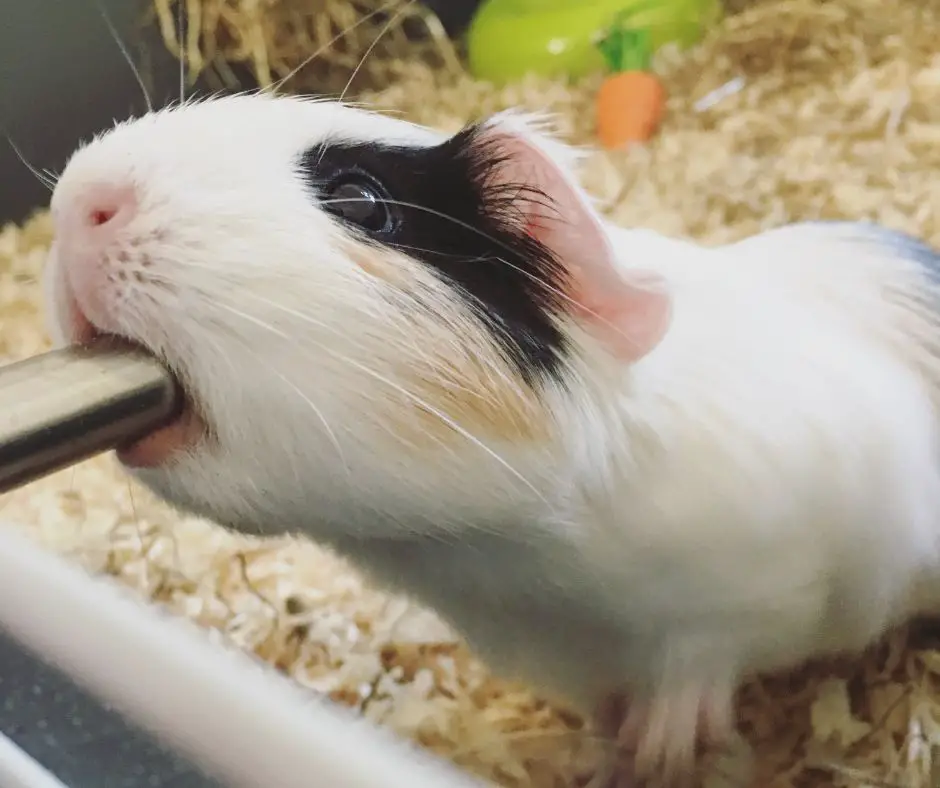
What Does it Mean When a Guinea Pig Drinks a Lot of Water?
If your guinea pig all of a sudden consumes a lot more water than is the norm, you certainly have a cause for concern.
Drinking large amounts of water may be the result of potentially serious conditions such as overheating, diabetes, dehydration or even kidney failure.
It is therefore important to keep an eye on your pet’s water consumption to take note of any abnormalities as soon as they manifest.
Overheating
An increased water intake may as well be a consequence of an elevated, internal body temperature. To cool itself down to a normal and safe temperature, the guinea pig will drink more water, quite like human beings do under similar circumstances.
You may notice the piggy presenting with an open mouth, looking lethargic, and lying down stressed out as a result of its body being overwhelmed by the heat.
Red ears, a wet nose and hiding inside its pen are yet other reactions to overheating. The pet may also appear reluctant to be petted or to engage in ordinary activities of playing due to exhaustion.
To be able to protect your guinea pig from overheating, it is important to have a thermometer in the vicinity of its cage.
This is especially crucial if you have changed the location of its cage from where it was accustomed to. A temperature ranging between 18-22 degrees is the acceptable, safe setting for these pets.
It is important to remember that guinea pigs are very sensitive to high temperatures and when exposed to the same, they tend to overheat quite fast.
Using a fan close to its cage may help enhance ventilation in its living environment and thus, will work to reduce the overheating.
Replenishing its water supply throughout the day is another obvious, simple means of equipping your pet with the means to lower its body temperature.
This is most effective when done alongside an enhanced diet of more fruit and vegetables. These also help with hydration when consumed.
Also read: Guinea Pig Temperature: Everything You Need To Know
Polydipsia
This refers to the condition where your guinea pig is under extreme thirst. Drinking way too much water than the expected consumption is the first symptom of polydipsia.
The condition may be a symptom of an underlying disease, or a manifestation of primary dehydration.
Without sufficient water in its bloodstream, the pet’s usual personality may change, and it may hide in the interior sections of its cage to avoid heat.
An immediate course of action when the guinea pig shows signs of extreme thirst is to avail cool, plain water in its cage. Be sure that the water bottle is not broken anywhere, and provide it with more vegetables alongside its usual diet.
It may also be a good idea to reduce the salty foods it consumes as this could contribute to dehydration which causes polydipsia. If the symptoms of excessive thirst appear not to abate after 24 hours, it may be time to reach out to a vet.
Also read: Do Guinea Pigs Know How To Use Water Bottle? – 7 Best Water Bottles for Guinea Pigs
Sign of Diabetes
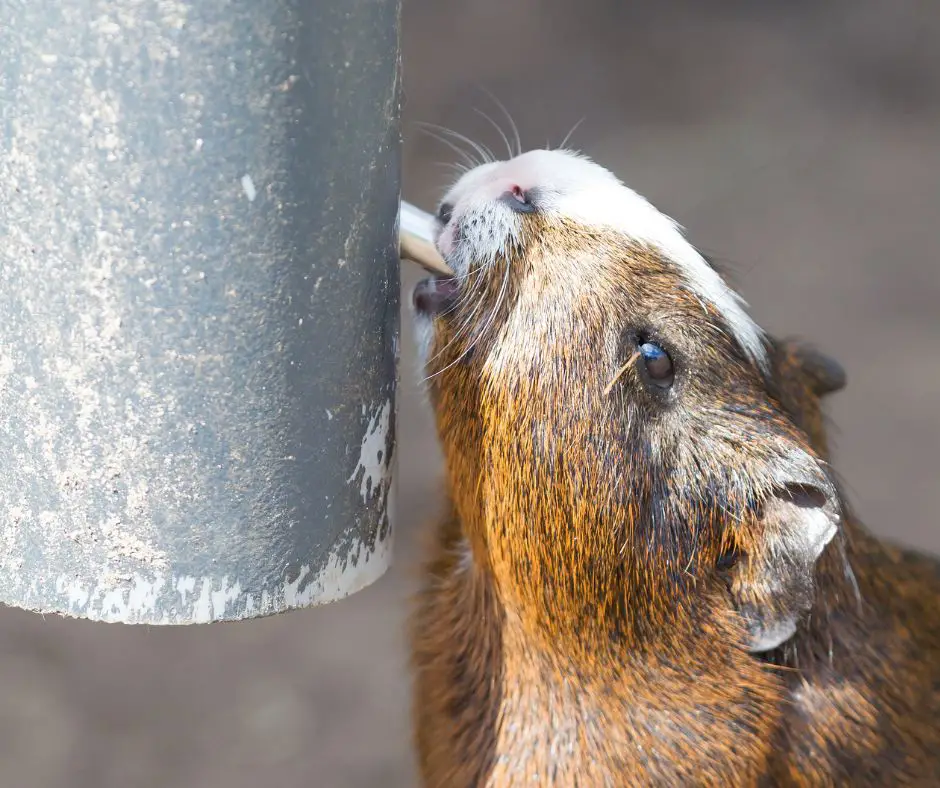
Like in humans, diabetes may result in an altered sense of thirst. Some of the symptoms that are indicative of this condition include unexplained weight loss, an increased frequency of catching urinary tract infections, more consumption of water, as well as increased urination.
It is important to visit the vet as soon as you notice any of these symptoms. The likely remedy for a guinea pig with diabetes is quite like a human being’s: shots for type I diabetes, and tablets for type II.
Many owners are able to safely administer medication for their pets on their own.
Don’t forget dietary changes: Most diabetic guinea pigs are obese and fed an inappropriate diet
Dehydration
A dehydrated body also causes a guinea pig to drink water excessively, and it may result from a number of causes. Diarrhea from a stomach upset, a sudden change in diet, and increased salt in the food served to a piggy may all lead to its dehydration.
Furthermore, when vegetables are not sufficiently provided in the diet, the guinea pig loses out on the added benefits of the water they contain.
Hence, it might be beneficial to investigate the cause of diarrhea and alleviate it, while adding more veggies and fruit to its diet. Replenishing its drinking water throughout the day is also crucial for rehydration.
Dehydration in a guinea pig may also be caused by an off-putting taste of water. Guinea pigs prefer plain water without additives, and when this is not the case, they may limit their consumption.
This may result in dehydration and whenever fresh water is introduced in the cage, they may drink a lot more than is normal. An obvious remedy for this would be to replace the flavored or dirty drinking water with fresh, plain water.
Sometimes, though, the dehydration may result from technical issues such as a dysfunctional water bottle nozzle. Water bowls which tip over frequently could also leave your pets dehydrated.
It is important to ensure that avoidable technical challenges do not expose your pet to dehydration. Frequently checking and replacing their water bottles and bowls is important in this regard.
Also read: Can Guinea Pigs Drink Out of a Bowl?
Kidney Failure
Kidney failure causes guinea pigs to drink water excessively, and is often accompanied by increased urination and weight loss.
The guinea pig may further present with general lethargy, which result from its reduced ability to filter out toxins by use of its kidneys. These symptoms further work to exacerbate its dehydration and need for more drinking water.
The failure may be caused by ingestion of oxalate-containing vegetables. In some instances, it also results from insufficient water intake by the pet, which prevents efficient flushing out of toxins from the body.
Because of this, the kidney becomes overworked and a kidney failure results. The condition must be diagnosed by a professional vet.
Is It Harmful If Guinea Pigs Drink Too Much Water?
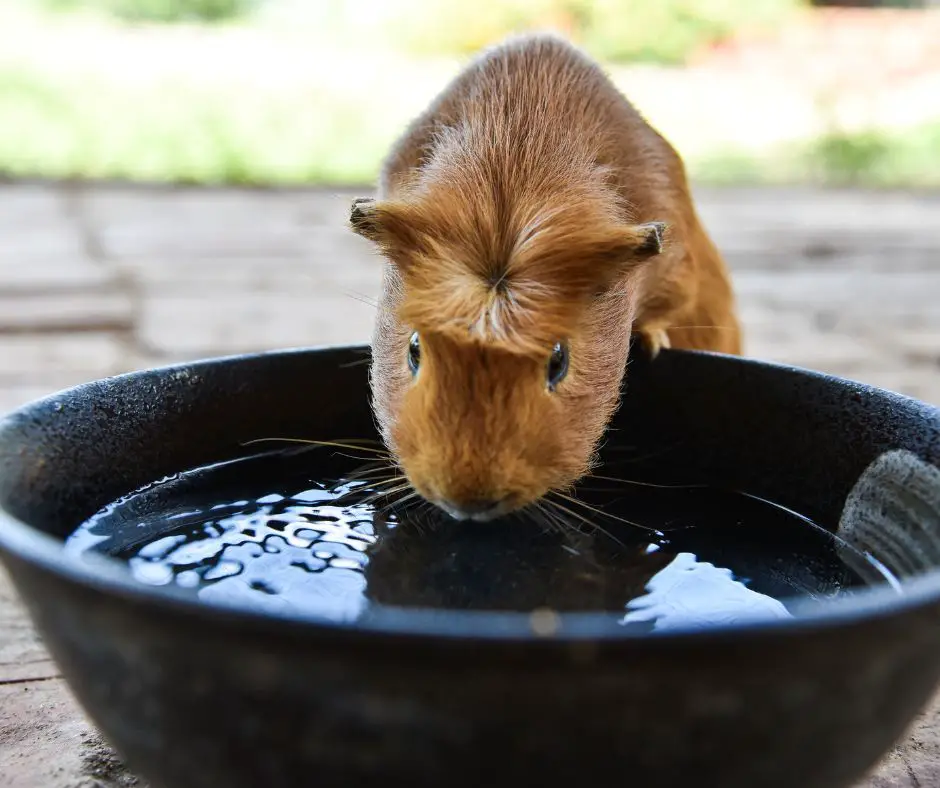
A healthy guinea pig often drinks water that is approximately as much as 10% of its body weight. When it excessively exceeds this, a serious condition may be the cause. Hence, if not diagnosed and managed in time, the condition may lead to its death.
In other instances, though, your pig may drink a lot of water in response to fairly harmless feelings of thirst. A broken water bottle, increased temperatures and salty foods may all cause it to suddenly require more water than is usual.
Providing plain water and setting the cage in a cooler environment may work to remedy the situation.
Generally, while the increased consumption of water may also harm your pet, the underlying cause and reason for the excessive drinking tends to be a lot more dangerous.
It is therefore important to visit a vet soon enough if the excessive consumption of water persists after a few days.
PAWCHIE Hamster Water Bottle with Stand for Guinea Pig
Conclusion
When a guinea pig excessively increases its water intake, it may be a signal that something is wrong. Overheating, diabetes and kidney failure may all cause the pet to consume more water, and if left untreated, may result in fatalities.
Sometimes, though, the excessive consumption may be in response to challenges in its usual feeding and watering routines.
A rapid change in diet, flavored water and a broken water bottle nozzle may decrease your pets ability to drink. As a response,it may overcompensate for the periods of dehydration by drinking more than is normal.
If excessive consumption of water persists despite changing the feeding and watering routines of your pets, it is important to contact a vet to rule out any serious underlying conditions.
